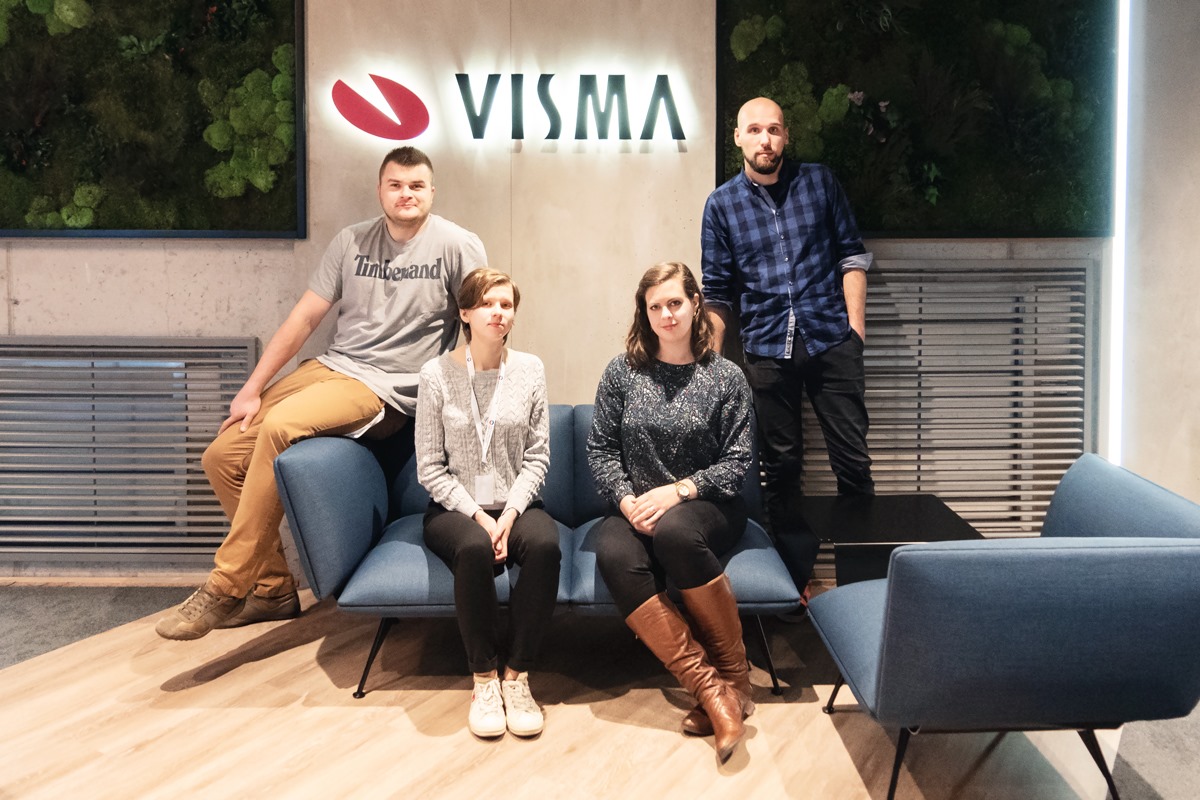
Visma Software International AS Case Study
“Getting out of ‘legacy limbo’ was our first step. Now that we are migrated to our new Visma.net Financials stack integrated with Zuora, we’re ready for the next step: moving more products and services to SaaS and combining more product offerings within the broader Visma family of products to make Visma | Raet a one-stop shop for everything HR related and more” – Tom van Dael, Finance and IT Director at Visma | Raet


Visma is a leading European supplier of business-critical software to nearly 1 million customers within the private and public sector, with 2019 revenue of NOK 15,028M, a growth of 32% over 2018.
New acquisition Visma | Raet needed to decommission their legacy software and migrate to a new Visma.net Financials set up. They needed a platform on which they could integrate with the broader Visma family of products, support moving services to a subscription-based model for Business Process Outsourcing (BPO) services and consultancy services, and scale.
They selected Zuora as an integral part of their modern Visma cloud tech stack for subscription management, streamlined billing, software provisioning, and access to essential customer insights.
With Zuora, Visma | Raet has better insights into product performance to help simplify the product catalog, introduce service subscriptions, and bring more value to customers.
“On Zuora we can better see what customers are actually paying for what kinds of products and services and we can use these insights to make fact-based decisions around our pricing strategy to simplify our product and service catalog and bring more value to our customers.” – Tom van Dael, Finance and IT Director at Visma | Raet
Raet BV, a cloud-based software suite for Human Capital Management, was founded in 1965. With it’s pre-cloud roots, Raet’s business systems had historically been run on “endless legacy software,” according to Tom van Dael, Finance and IT Director at Visma | Raet. But when they were acquired in May 2018 by Visma, a leading European supplier of business-critical software — and with their old legacy system “at the end of its life” — they made the decision to completely update their business systems infrastructure to a modern tech stack.
Zuora got on Visma | Raet’s radar for subscription management because it was already being used by some of Visma’s other acquisitions. Visma has a center of competence on Zuora and integrations with other Visma business software and the team was impressed with the fact that, as van Dael notes, “Zuora is a thought leader on recurring revenue, which drives the value of a company.”
Ultimately, Visma | Raet “kicked out” their old software and replaced it successfully with parent company Visma software: Visma.net Financials, ProActive and Onguard, with Salesforce for CRM, and they went all in on integrating with the Zuora platform for subscription management. Since that leap, there have already been two more new Visma acquisitions that are adopting the Visma | Raet environment and stack. The goal is to be a showcase of integrated Visma business software with integrations to Salesforce and Zuora for the market and other Visma companies for added value and a seamless customer experience.
Now fully on Zuora, Visma | Raet is in the early stages of piloting new GTM strategies as they look at different markets and segments. But none of this would be possible without a billing and provisioning environment that works.
“Don’t make the mistake of underestimating provisioning,” warns van Dael. “It may be a simple concept, but it’s the most difficult part, because if something’s wrong, then your customers can’t use your software. That’s a problem.”
Says van Dael, “Getting out of ‘legacy limbo’ was our first step. Now that we’re fully on our own Visma business software integrated with Zuora we’re ready for the next step: moving more products and services to SaaS and combining more product offerings within the Visma family of products to make Visma | Raet a one-stop shop for everything HR related and more.”
With their old legacy billing system, it was a challenge to access customer info. On Zuora they now have “one customer view, one invoice.”
“On Zuora we are getting better insights as to how our products are performing,” says van Dael. “With our legacy system for 30-40 years, we had multiple different price points and product bundles which created poor insights. Now that we can better see what customers are actually paying for what kinds of products, we can use this to make better fact-based decisions around our pricing strategy to simplify our product catalog and bring more value to our customers.”
In the past year, Visma has seen an increase of nearly 100% of new subscribers onto the Zuora platform. This is an indication of tighter integration throughout the Visma ecosystem onto the Zuora platform, and a sign of things to come.
Cloud computing continues to be a key driver for growth for Visma. Businesses are seeing the benefits of SaaS software and, as a result, demand for cloud computing and mobile solutions continues to grow. Per their 2019 annual report, Visma has invested heavily in its SaaS products since 2010, and is now “reaping the rewards from our demanding transition to becoming a cloud company.” Specifically, “revenues from Cloud Computing grew to NOK 10 854m and were 72% of total revenue.”
And now Visma | Raet is poised to realize the value of their agile new Visma tech stack and of Zuora: one platform to combine all business services with a unified billing and provisioning environment, where they can create and upgrade bundles, get new APIs, and cross-sell across the Visma ecosystem of products.

“Don’t make the mistake of underestimating provisioning. It may be a simple concept, but it’s the most difficult part, because if something’s wrong, then your customers can’t use your software.” - Tom van Dael, Finance and IT Director at Visma | Raet


